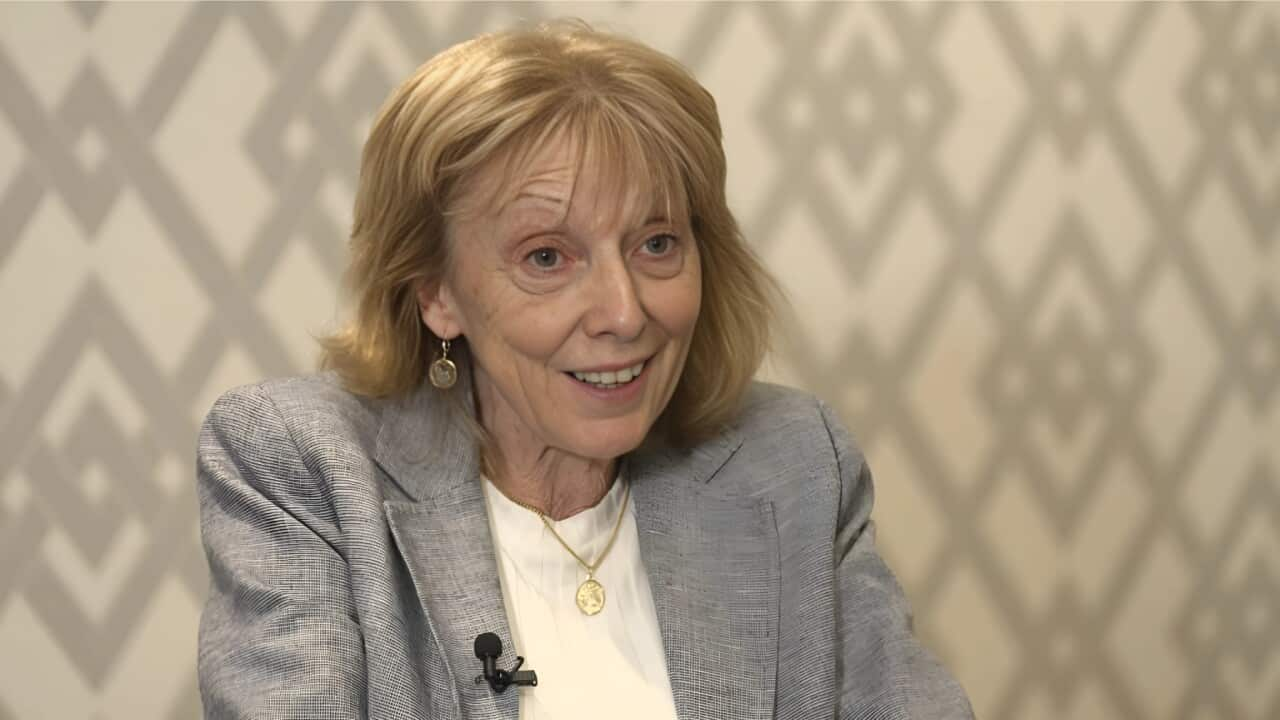TRANSCRIPT
After years of smoking, this woman in her 20s started using e-cigarettes, or ‘vapes’ as they are commonly known, nine months ago.
She was curious to see if she’d like it, and if it would help to reduce her nicotine intake.
"I didn't really enjoy it at first, but eventually, you know, they do have nicotine in them. So, that same dopamine hit that I was chasing with cigarettes, eventually, it was just replaced."
She says she has mixed feelings about vaping.
Not having clothes smelling of cigarette smoke and being able to be more discreet when puffing are definitely a plus, but she’s not so sure as far as her health is concerned.
"So health-wise, I don't really know if I notice any difference at this stage because I don't feel worse from vaping, I don't feel notably better. It's kind of just, I don't crave nicotine. So, that's probably the biggest thing, is that I stopped smoking, but I'm still addicted to nicotine and I'm still using it, so..."
It's 15 years since e-cigarettes were first launched.
Back then, they looked like plastic versions of regular cigarettes and weren't particularly popular.
Now, some of them could be confused with toys or highlighter pens.
They were also initially meant as a tool to help people stop smoking.
Now, they're marketed as a recreational pastime.
Professor Becky Freeman from the University of Sydney School of Public Health says they’ve been attracting young people in recent years.
"Teenagers, so that age 13-to 17-year-old bracket, are some of the biggest users of these products. And again, young adults, aged 18 to 24, a population that have grown up with health warnings on cigarette packs, anti-smoking ads on television, you can't smoke in indoor public places. These products are for them. They were designed for young people, they're marketed to young people, and they're being used by young people."
In 2018, only 2 per cent of 14- to 17-year-olds in Australia reported being smokers.
Anita Dessaix, chair of the New South Wales Cancer Council's Public Health committee, says that number has now reached 6 per cent.
"Over the course of, let's say, the past two decades, Australia has been at the forefront of seeing some of the lowest smoking rates in the world, especially amongst 18-to24-year-olds as well as 14-to-17-year-olds. Unfortunately, what we've seen over the past five years is we've seen an upkick in smoking, which does happen to coincide with where we've seen a really significant increase in vaping."
Right now in Australia, it’s illegal to buy, possess or use vaping products that contain nicotine without a prescription from a registered G-P.
It’s also illegal to sell these products to people under the age of 18.
But importers and vendors carried on selling what they say are ‘nicotine-free’ vapes which, according to research done by Professor Freeman - who leads a project called ‘Generation Vape’ - isn't true in most cases.
"If you're a young person, you're led to believe that there's just water vapor in these products with a little bit of flavor and nothing could be further from the truth. We know from lab studies they contain very high concentrations of nicotine. They have traces of heavy metals, which are harmful. And when you compare them to, say, household products like nail polish remover, cleansers, bug sprays, those same chemicals can be found in vaping products."
She also points out that nicotine is highly addictive, especially for people under the age of 25, whose brains are still developing.
Vapes in Australia are disposable, substantially cheaper than cigarettes and come in a variety of enticing flavours and colourful designs.
They're also easy to conceal because they look like a highlighter or keyring toy.
But it takes a lot of resources to prosecute vendors who flout the law, especially considering the vast number of products currently flooding the market.
The process involves seizing vaping products, testing them to ascertain whether they contain nicotine and then penalising the perpetrator - not enough to discourage the very lucrative sale of vapes.
In May, the Federal Australian Government announced new vaping reforms they hope to introduce in parliament by the end of the year.
The main aims of the proposed legislation are to only allow vapes to be sold in pharmacies, ban all non-prescription vaping products whether they contain nicotine or not, increase the quality standard, reduce the nicotine concentration, ban disposable vapes and impose medication-like packaging.
Professor Freeman applauds the new government initiative, but also has a warning.
"We have a really small window of opportunity to act now with urgency before I think it's too late and we won't be able to prevent this whole generation from being addicted for decades. So, acting urgently and decisively is exactly what we need."
The government says its proposal targets importers and vendors, not consumers.
It’s hoping that fewer resources will be necessary by stopping illegal imports at the country’s borders.
Anita Dessaix says the main aim of the proposed law is to make it as difficult as possible for children to access the products.
“Our hope is that it's really going to reinforce a valid prescription pathway and send a really clear signal that this is not a normal consumer good. It is actually a product that needs to be used under the care, potentially, of a GP."
Not everyone is in favour of the proposed legislation though.
New South Wales Parliament Greens health spokeswoman Dr Amanda Cohn says it amounts to prohibition, which is doomed to fail.
"We know that prohibition doesn't work. We've seen authorities try to regulate supply of a whole variety of illicit drugs, cannabis is the obvious example, where there's an absolutely rampant black market that authorities haven't been able to rein in. We’re already seeing a huge black market of vaping products. I have much more confidence in the abilities of authorities to regulate these products rather than ban them outright."
Dr Cohn says the Greens would prefer to see the same type of regulation already applied to cigarettes: so things like plain packaging, strict rules about where and to who they can be sold, and where they can be used.













